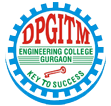Department Overview
Electrical engineering is one branch of the engineering profession, and is concerned with the
understanding of electricity and the development of electronic systems.
The field of electrical engineering was established at the end of the 19th century when electricity
generation and telegraph systems were being developed. The field has grown to encompass the computing
and electronics fields, in addition to telecommunications and power transmission.
An Electrical Engineering student can opt for any one /more of the following braches/fields for their careers:
- Power – The creation, storage, and distribution of electricity for industrial, commercial, residential, or municipal use.
- Control – The design and development of electronic systems that rely on inputs to control the outputs
of a system or process, such as aircraft autopilot systems.
- Electronics/Microelectronics – The design and development of electronic circuits, including analog
circuits, integrated circuits, microprocessors, and other semiconductor components.
- Signal Processing – The evaluation of analog or digital electronic signals,
including filtering, data analysis, signal manipulation, compression or amplification.
- Telecommunications – The design and development of voice or data transmission
systems, including cable, fiber optic, or wireless systems as a transmission path.
- Instrumentation – The development of sensors data acquisition equipment to measure the
characteristics of objects or systems.
- Computers – The design and development of computer systems, from computer gaming
consoles and portable data assistants (PDAs) to desktop computers and server systems.
Academic programs on electrical engineering emphasize on the thorough understanding of electrical
networks, electrical energy converters, devices of electromagnetic field theory, electrical energy
distribution systems etc.
Scopes in electrical engineering lie in the areas of generating electricity, its distribution and
transmission. Electrical engineering also has its applications in electronics, telecommunications,
computers and micro processors. Most of the courses are a combination of electrical and electronic
systems.
Employment Opportunities
An electrical engineer has a wide range of activities, and thus, a lot of options.
Career in electrical engineering encompasses the following fields:
- Telecommunications Systems
- Electric Power Stations
- Wiring and lighting of houses
- Designing household appliances
- Electrically-controlled industrial machinery
- Communications
- Computers
- Electronics
- Robotics
- Biomedical electronics
- Signal processing
- Transportation
- Industrial process control
- Energy operation and distribution
- Electro-mechanical energy conversion
Many electrical engineering graduates opt for careers in the food, pulp and paper, chemical, aircraft
and automobile industries.
The Department of Electrical Engineering have following laboratories:
- Basic Electrical Engineering Lab
- Electrical Machine Lab
- Power System Lab
- Control System Lab
- Electrical Circuit Analysis Lab
- Measurement and Instrumentation Lab
- Transmission and Distribution Lab
- Computer Aided Electrical Machine Design Lab
The Department offers a Bachelor’s level programme (B.Tech) in Electrical Engineering with an intake of 30
students. All engineering programmes have been affiliated with Maharishi Dayanand University, Rohtak (Haryana)
and Approved by All India Council of Technical education, New Delhi and Department of Technical Education,
Haryana.
Vision
To produce technical and knowledge based quality engineers with ethical and emotional strength for converting global challenges into opportunities in the field of Electrical Engineering contributing towards nation building and progress of humanity.
Mission
- To impart quality education in the areas of electrical engineering for enhancing the opportunities for employment, higher education, innovation, entrepreneurship.
- To maintain a positive academic environment that promotes excellence in learning through constructive interaction among students, faculty, alumni and Industry.
- To excel in imparting domain specific technical education through effective teaching learning process, creativity and critical thinking in applying engineering skills to face the fast growing global challenges and opportunities.
- Moulding the graduates into world class technocrats for life-long learning to meet intellectual, ethical and career challenges.
HOD’s Message
Thank you for showing your interest in Department of Electrical Engineering at DPGITM,
Gurgaon.
Electrical Engineering was introduced in the year 2011 at our esteemed institution, DPGITM
with a key objective and aim of providing both fundamentals and Industry/Future ready
programs in this field by nurturing the students to deep-dive in their fields of interest and also
motivating them to excel. The Department currently offers Bachelors degree in Electrical
Engineering.
Like any other area of science, Electrical Engineering technology is also going through rapid
changes. In order to impart education in such an ever-changing area, an institution needs to keep
itself always updated through course curriculum, laboratory resources, and most important
faculty. We have a team of qualified, experienced & dedicated teaching faculty. Department is
supported by equally dedicated qualified laboratory staff .Liaison with industry in the form of
industrial visits, students training, expert lectures and arranging of seminars & workshops are an
integral part of our educational program. We at DPGITM are at the forefront, as far as high-
quality engineering education is concerned. Our engineering laboratories are well equipped .Our
curriculum goes through regular revisions to incorporate new developments for imparting the
course contents and knowledge beyond syllabus given in the University curriculum.
The department has a dedicated team of faculties with a wide spectrum of specialization such as
Power Electronics, Power Systems, Control system, Industrial Drives, High Voltage.
Through a good blend of course work and projects, the department endows students with the
ability to apply knowledge of science, mathematics, and engineering to work effectively in
multidisciplinary teams, provide leadership and technical expertise, and practice engineering
with ethical approaches and concern for society and environment.
I welcome the prospective students/all stakeholders to the Department of Electrical Engineering
at DPGITM Campus, Gurgaon.
My sincere thanks to the management, Managing Director, Principal, all my faculty members
and all my students for supporting me at every point to keep the department in high esteem.
Faculties
| Name |
Designation |
| Ms. Devjani Bhattacharya |
Astt. Prof. & Head |
| Mohan Lal |
Prof. |
| Pushpanjali Singh Bisht |
Asst. Prof. |
| Ms. Ritu Sharma |
Asst. Prof. |
